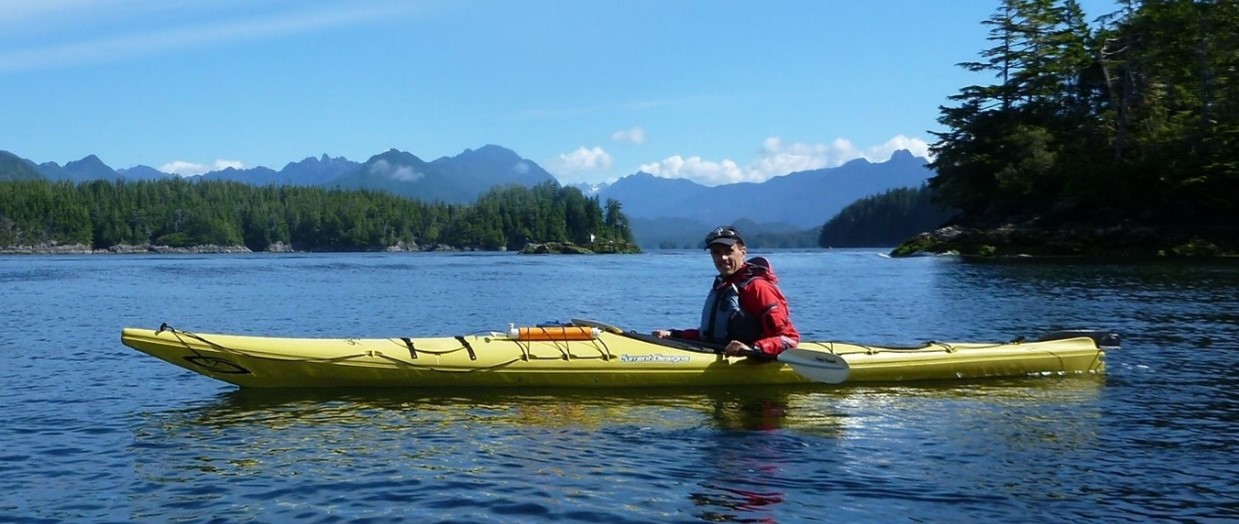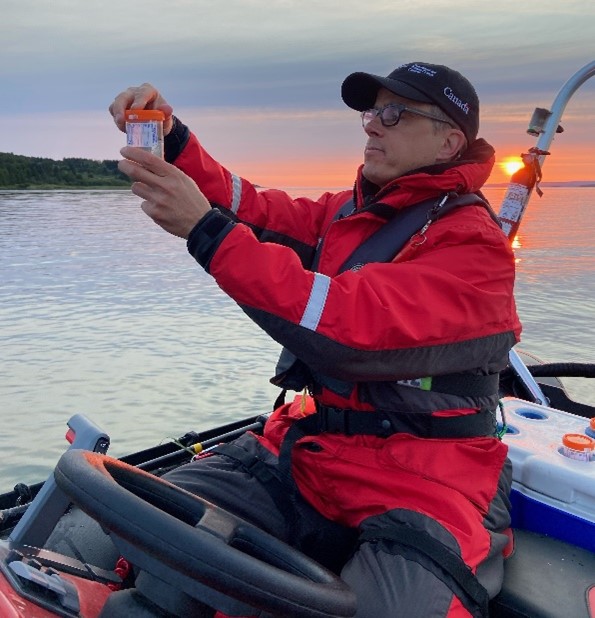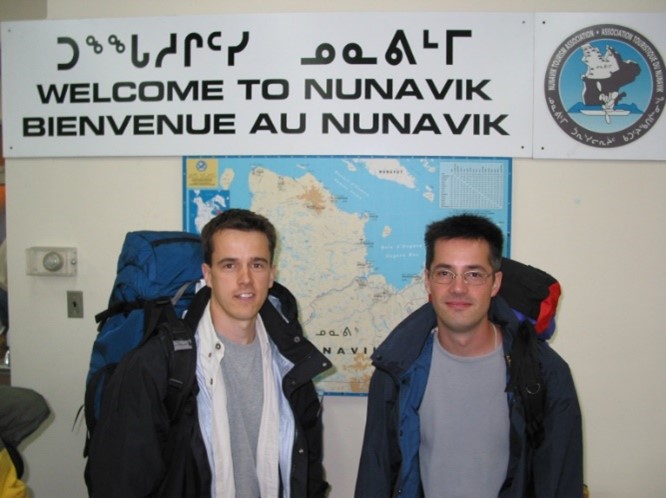Spotlight on science: When nature beckons at work too
Profile of Yves Lamontagne
When nature beckons at work, too
It is with great enthusiasm that Yves Lamontagne discusses his commitment to his job as Area Coordinator for the Shellfish Water Classification Program (SWCP) at Environment and Climate Change Canada (ECCC). Originally from Québec City, Yves is a geographer who joined ECCC in 2001. However, he began his career in the public service well before then. Here is the story of a passionate and determined man who is working to protect the health of Canadians.

Sea kayaking in British Columbia
Yves became the SWCP coordinator for the Quebec Region in 2005, and he continues to enjoy his work to this day. In the 1990s, environmental job opportunities were few and far between. “During my summer internships with the government, I had a strong desire to get out in the field. So, I went knocking on several managers’ doors and was eventually told yes,” he says. Being surrounded by nature is a priority in both his professional and personal life. “What interested me then, and still does today, is the field. If I could do fieldwork every day, I would,” says Yves.
Protecting public health
There are various species of bivalve shellfish that live along the shoreline, and they filter water to feed themselves. They also accumulate fecal coliforms and waterborne toxins in their flesh. While these are harmless to mollusks, these substances can have severe consequences for humans who consume them and can even be fatal.
With public health protection as its primary objective, the Canadian Shellfish Sanitation Program (CSSP) was set up in Canada’s Maritime regions (Pacific, Quebec, and Atlantic), a program administered jointly by the Canadian Food Inspection Agency and the Department of Fisheries and Oceans (DFO). The SWCP team (Quebec Region), coordinated by Yves from within ECCC, is responsible for continually making sure that marine water quality meets the standards set by the CSSP in order to ensure that bivalve shellfish are harvested safely.

During sampling, Île Verte, QC
As Area Coordinator, Yves wears many hats. He has to coordinate and supervise the work of his team, identify the shellfish areas that need to be reassessed annually, and coordinate the work of consultants, with whom he maintains lasting and trusting relationships. These consultants collect and analyze marine water samples taken along shorelines. The fecal coliform results are then analyzed by Yves and his team in order to provide DFO with classification recommendations. “My work is exciting and varied. Some tasks are recurrent, but it’s never boring. There are always challenges and developments that make me love what I do.”
In recent years, Yves and his team have noted that the significant increase in the frequency of heavy rainfall and storms can affect bacteriological water quality in some shellfish areas that are more reactive to such weather, leading to more emergency closures of harvesting sites.
Strength in numbers

With his colleague Martin Rodrigue in 2002,
Kuujjuaq, Quebec
Yves has great respect for the work of the four employees under his wing, and who have become friends over time. “The reason behind our work is to protect public health, and this isn’t something I could do alone. When you find the right people and the magic happens, you want them to be happy and you want them to stay.”
He also shares a memory from an important trip to Nunavik that he took with his colleague, Martin Rodrigue, in 2002. Their task was to gather data to implement the CSSP in this northern region of Quebec, where 14 Indigenous communities harvest shellfish. “It was a wonderful trip that I’ll never forget,” he says. The risk analysis tools they developed during this trip are still used today in his work to assess the impact of pollution in shellfish areas along the St. Lawrence River, Chaleur Bay, and the Magdalen Islands marine shorelines.
Ensuring their work continues in the future
Yves is still motivated to this day by the variety provided by the program, fieldwork, data analysis, and report writing, as well as by the work with consultants and projects involving new aquaculture proponents. He is also sometimes called upon to do occasional interviews with local media to build awareness of the program and its purpose. One of his wishes is to collaborate more often with his Pacific and Atlantic colleagues in order to standardize methods for ensuring program compliance.
He would also like to be able to hire more students to ensure the continuation of the Quebec Region team. There was always a good pool of qualified students before the pandemic. He would like to return to universities to spread the word about the program and recruit future colleagues.
In continuing to promote the program and work with experts, ensuring continuation of their work, and carrying out the mandate of protecting public health, Yves and his team can expect nothing but good things. We wish them the best of luck in pursuing these goals with a smile, in the great outdoors and in good company!